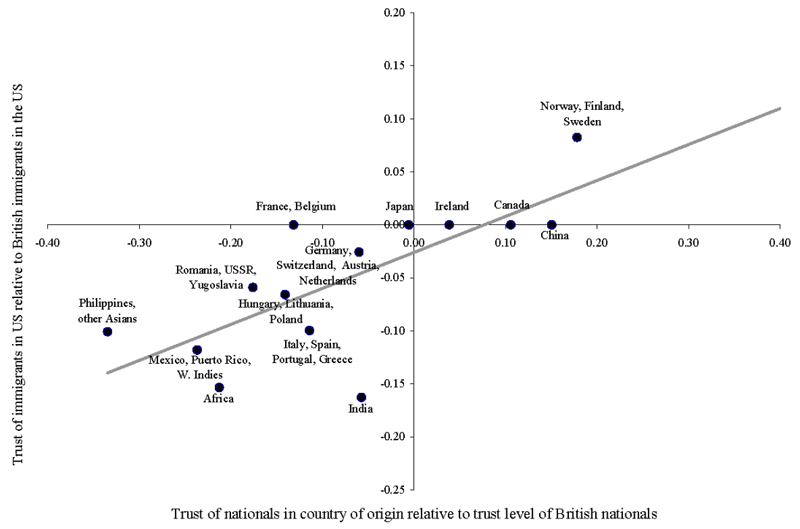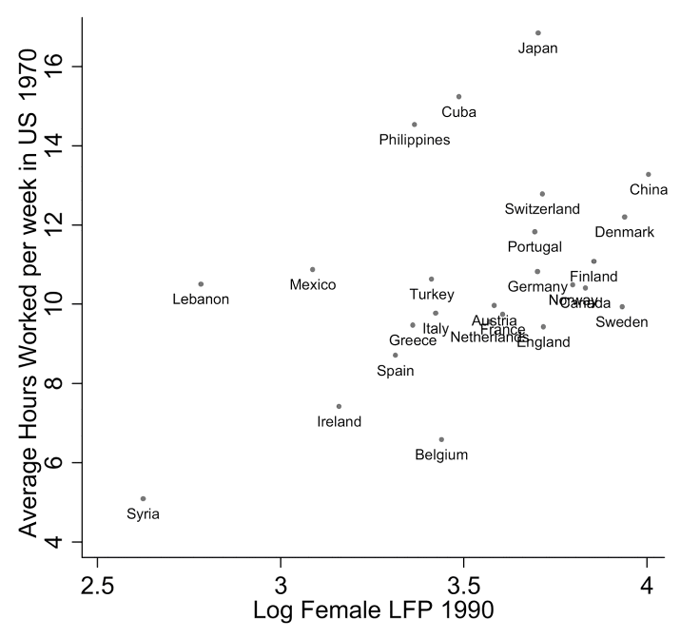Culture matters
My wonderful NYU Economics colleague Raquel Fernandez has been carrying out a fascinating research program on the effect of culture on development outcomes. The academic literature on this is exploding, and Raquel surveys it in a recent paper. A simple yet powerful methodology for exploring the role of culture is to study differences in behavior among second-generation immigrants to the U.S. The idea is that all of them face a similar environment in the US, yet bring with them the cultural differences of their parents' country of origin. So differences in immigrant behavior could be attributed to culture (with a large number of caveats that Raquel addresses in her paper).
The figure below shows the association between attitudes about "trust" in the country of origin and "trust" in immigrants to the US from that country.
A second figure shows the association between female labor force participation in the country of origin and how many women work among immigrant groups.
Researching culture used to be taboo in economics; thank goodness that has changed. The finding that "culture matters" reinforces the recent general finding in academic development research that very long-run factors matter more in development than we used to think.
 From Aid to Equality
From Aid to Equality




